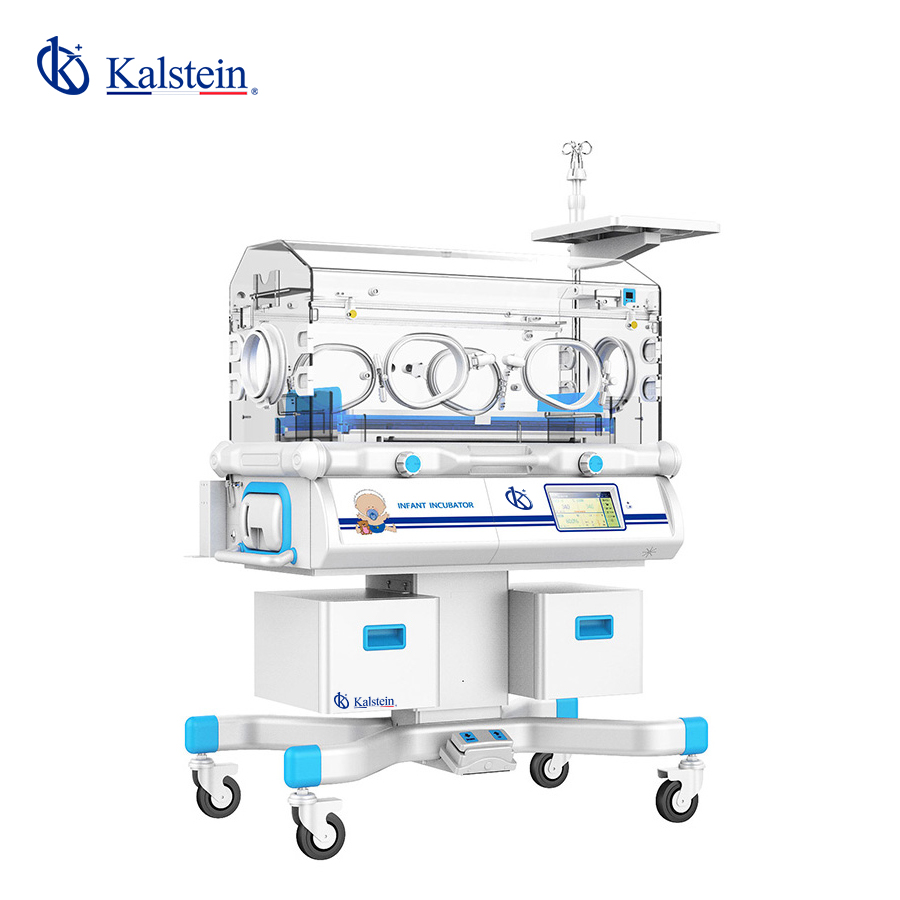Baby incubators are devices of the latest medical technology used to provide a conducive environment for the development of premature or sick newborns. These enclosed units maintain a constant temperature and controlled humidity, simulating the conditions of the mother’s womb. Moreover, they prevent contact with harmful germs.
Incubators are an integral part of neonatal intensive care units (NICU), providing an extreme care environment for newborns requiring more detailed attention. With recent advances in lab research, modern incubators offer enhanced features such as oxygen control, infrared heat radiation, and neonate care restraints.
Are you yearning for top-tier medical equipment, ready to enhance the efficiency of your laboratory? Visit https://kalstein.de/category-product/medical-line/infant-phototherapy-incubator/ to explore our high-end catalog, packed with the best finds at the most competitive prices. Excellence marks our brand, we innovate and manufacture high-precision equipment, both reliable and durable to meet your needs. Why wait? Make your quick and secure online purchase, take the leap towards the future of medical technology today. https://kalstein.de/
Benefits of using a Baby Incubator
Baby incubators are essential for saving lives. They supply heat to the newborn’s body, which is not yet prepared to maintain its own temperature. This heat regulation keeps the baby’s vital organs working more effectively, allowing steady growth.
In addition to regulating body temperature, baby incubators provide a hygienic and sterile environment for the baby. The closed design of the incubator protects the newborn from external infections, which can be extremely harmful and often lethal to newborns.
Picking the Appropriate Incubator
Selecting the appropriate incubator involves considering factors such as the baby’s condition, the surrounding environment, ease of use, and efficiency. The incubator must be able to maintain a consistent temperature and humidity, provide enough oxygen, and be spacious enough to accommodate the baby comfortably.
Additionally, incubators with extra features, such as constant monitoring of temperature and humidity, safety alarms, and access windows for baby care, are essential. Considering the ease of cleaning and maintaining the incubator is also crucial for ensuring durability and hygiene.
How to Use a Baby Incubator
Firstly, it is essential to familiarize yourself with all parts of the incubator before placing the baby inside. You need to adjust the temperature, humidity, and, if necessary, oxygen levels. The adjustment of these parameters depends on the weight and health of the newborn.
Always make sure to monitor the baby constantly and make necessary adjustments in the incubator. Most modern incubators have built-in alarms that trigger if there is any irregularity in the settings. Furthermore, you should avoid opening the incubator frequently to maintain a controlled environment.
Baby Incubator Maintenance
Regular maintenance of the baby incubator is essential to its efficiency. After each use, it should be cleaned with a disinfectant to eliminate any harmful bacteria or germs.
Furthermore, it’s critical to regularly check the status of the incubator’s functions. Verify all parameters and ensure the incubator is working as expected. In case of any irregularity, seek immediate assistance from a maintenance technician.
Latest Trends and Advances in Incubation Technology
With recent advances in laboratory research in the field of neonatology, baby incubators have evolved significantly. Modern incubators come equipped with technological novelties, including digital temperature and humidity monitors, oxygen control, and infrared heat radiation systems.
Additionally, some advanced models feature intuitive user interfaces and remote control functionalities to facilitate operation by medical staff. The latest trends in this medical technology are also leaning towards the incorporation of artificial intelligence and machine learning functionalities to further optimize the care of newborns.

